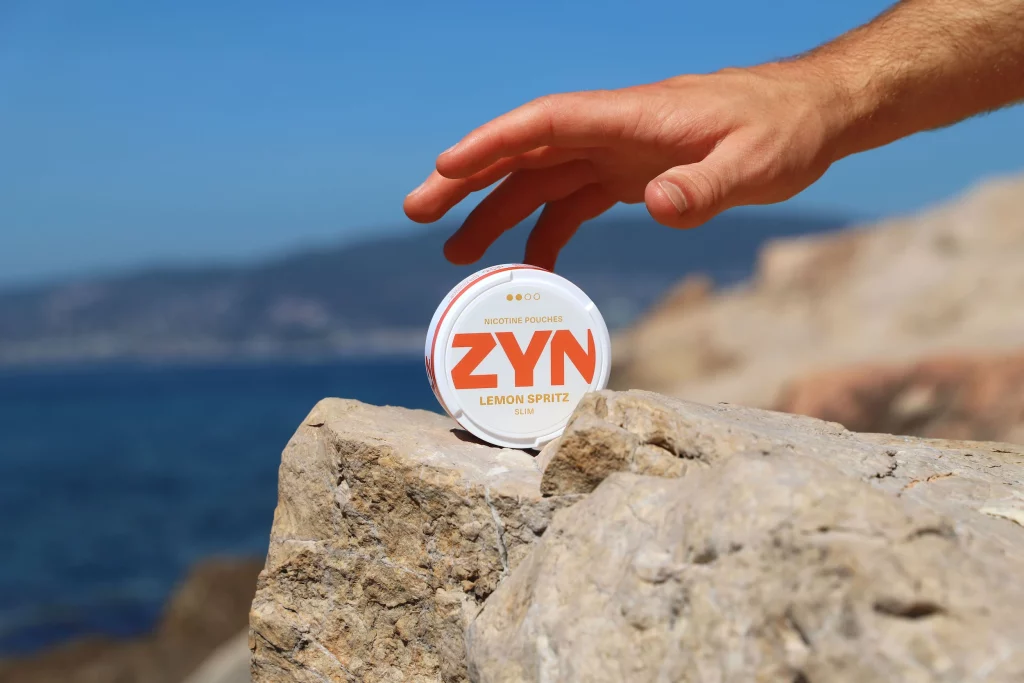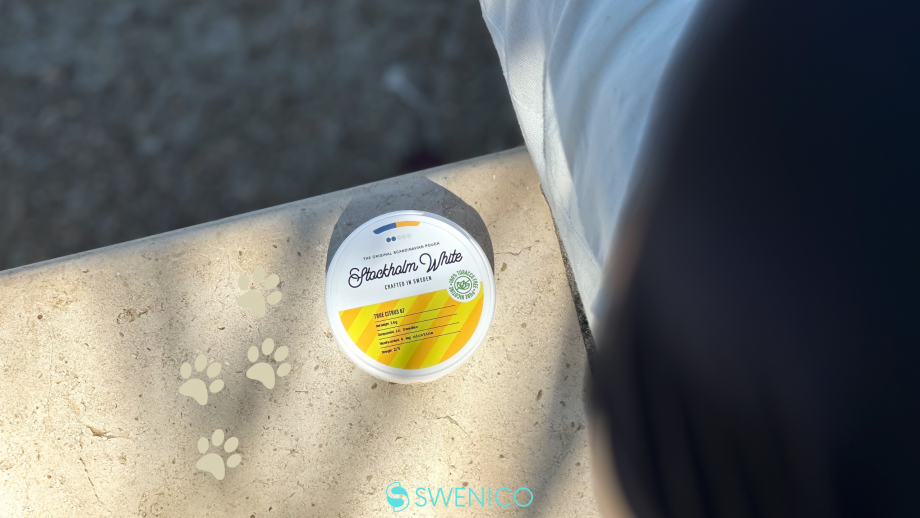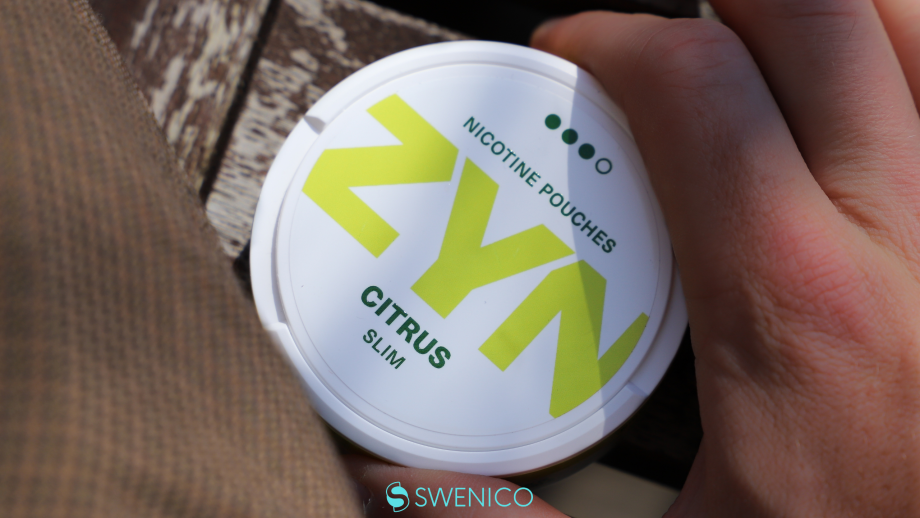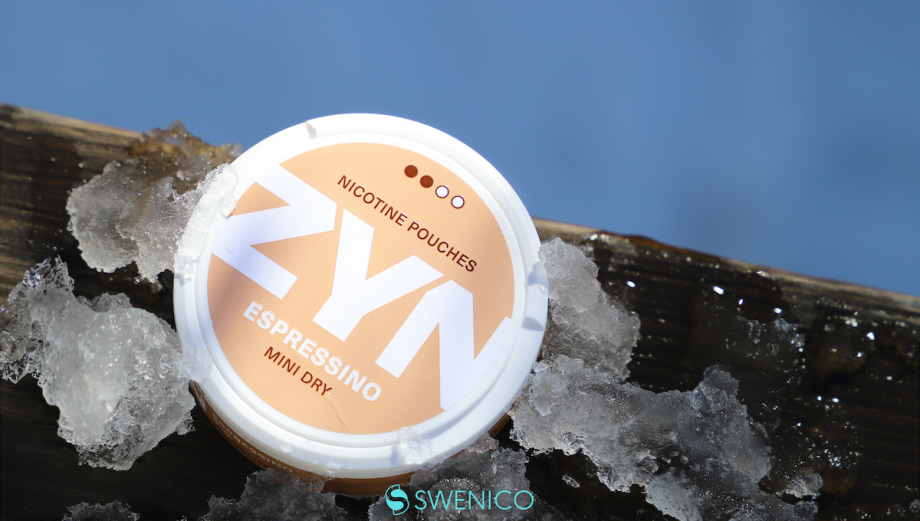As nicotine pouches increase in popularity, so have the potential scenarios that people may find themselves in.
One such scenario is if your dog accidentally eats a nicotine pouch.
As a dog owner, you always stand in front of the challenge of preventing your dog from getting access to potentially dangerous things that they should not eat, whether it’s a bar of chocolate laying on your dinner table, or a bag of candy on the sofa table.
However, despite your best efforts to prevent things like these from happening, the situation may arise where your dog eats a nicotine pouch. This naturally begs the crucial question of what you should do and whether they can pose a danger to dogs.
Nicotine Poisoning in Dogs
To understand whether it is dangerous for dogs to eat nicotine pouches, we need to understand what they are and what they contain. The most important ingredient in nicotine pouches is nicotine. Apart from that, they contain a few other food-grade ingredients like flavorings and preservatives. The main ingredient in terms of volume is plant fiber.
With that said, the only ingredient that can be a cause for concern if ingested by your dog is the nicotine. Whilst plant fiber is not meant to be ingested, neither by humans nor dogs, it won’t pose any health risks if it’s a small volume and not done systematically.
Now, nicotine is a potent alkaloid that is rapidly absorbed into the bloodstream when ingested. At the same time, it’s important to point out that the rate of absorption is much lower in the stomach than it is when placed under the upper lip, as they are intended to be used.
In dogs, the effects of nicotine are particularly impactful on the central nervous system. The substance stimulates the release of neurotransmitters such as dopamine and norepinephrine, leading to an array of physiological responses.
Answering the question of what happens if a dog eats nicotine pouches, the short answer is that it depends on a number of different factors. This includes the dog’s size, the amount of nicotine ingested, and the number of pouches. Naturally, there are two factors that affect the amount of nicotine ingested, namely the nicotine strength of the product and the number of pouches ingested.
Naturally, small breeds and puppies are more susceptible to adverse effects due to their lower body weight. Pouches with high nicotine strength can also escalate the risk, including for larger dogs.
If it’s a normal or large-size dog, the nicotine strength was low, and the dog didn’t consume a large amount, there’s likely no big reason for concern. With that said, it’s always best to consult with a veterinary and to keep an eye on your dog in case they display any signs of discomfort, regardless of the amount of nicotine consumed.

Common Symptoms of Nicotine Poisoning in Dogs
If your dogmas accidentally consumed nicotine pouches, it’s important that you look for any signs and symptoms of nicotine poisoning in your dog.
Vomiting and Diarrhea
One of the most common and initial signs of nicotine toxicity is vomiting, which is often accompanied by diarrhea. This is the body’s attempt to expel the toxic substance that contributes to these gastrointestinal symptoms. If your dog displays any of these symptoms, it is best to consult with a veterinary to see if they advise any further steps.
Increased Heart Rate
Nicotine is a stimulant, for humans as well as for dogs. If your dog has a preexisting heart condition, this can be an even greater reason for concern.
Tremors and Seizures
Neurological manifestations of nicotine poisoning include tremors and seizures. Whether your dog has actually been subject to a full-on case of nicotine poisoning obviously depends, as discussed, on the amount of nicotine consumed.
Signs to look for here includes uncontrollable shaking and in severe cases full-blown seizures.
Respiratory Distress
The nicotine may impact your dog’s respiratory system which may result in labored breathing and respiratory distress. Keep an eye on your dog to see if it exhibits signs of panting, coughing, or difficulty breathing. If so, you should take immediate action.
Potential Fatal Outcomes
In the worst-case scenario, nicotine poisoning in dogs may lead to fatal outcomes. However, your dog must have consumed a fairly large amount of nicotine for this outcome. Regardless of the amount, however, it’s important to monitor your dog for any of the above signs and to consult with a veterinarian.
Immediate Steps to Take if a Dog Ingests Nicotine Pouches
Your dog has ingested one or more nicotine pouches: now what?
The first step is of course to pay attention to your dog’s behavior. If you suspect they have ingested nicotine pouches but are not quite sure, monitoring them for any symptoms will help you determine whether there is reason for concern.
Next, try to identify the amount of nicotine pouches they have ingested, the nicotine strength, and thus the total amount of nicotine. This information will be useful for veterinarians when aiding in assessing the potential level of toxicity.
Contacting a Veterinarian Promptly
Every dog is different and each specific situation, as well as the amount ingested, will impact the situation’s severity. For that reason, there is never a clear-cut answer, hence why it is best to always contact a veterinarian promptly. If your dog has indeed ingested a high dose of nicotine, time is an important factor as the longer time passes, the more nicotine will be absorbed into your dog’s bloodstream. You can seek assistance from either your veterinarian or an emergency animal poison control hotline. Provide them with detailed information about the situation, the amount consumed, your dog breed, age, and observed symptoms, if any.
Avoid Home Remedies Without Professional Guidance
If the situation requires you to take further action, it’s important that you don’t take any action without the guidance of a professional. Don’t attempt any home remedies without being explicitly advised by a veterinarian first.
The most natural thought is of course to induce vomiting in your dog but depending on the situation, it may worsen the situation or cause additional harm to your dog, which is why you should only do this if advised.
Treatment
If your dog has ingested a large amount of nicotine, it may require treatment. There are a few different alternatives that professionals may turn to depending on the specific situation.
Decontamination
Decontamination is the most common solution which involves inducing vomiting or administering activated charcoal. When it comes to nicotine pouches, the purpose of this is to prevent further absorption of nicotine into the bloodstream. These measures should ideally be carried out shortly after ingestion to prevent a larger amount of nicotine from being absorbed.
Intravenous Fluids
Another potential remedy that professionals may use can include intravenous fluids which are used to support hydration and aid in the elimination of nicotine from the dog’s system. Intravenous fluids will help counteract the dehydrating effects of vomiting and diarrhea which may appear. In addition, nicotine is somewhat dehydrating which may further increase the importance of this remedy.
Medication for symptoms
If your dog displays obvious signs of nicotine poisoning, a veterinarian may prescribe medicine to mitigate them, which will help the dog feel better.
Lastly, it’s important to follow your dog’s health and behavior a few days or even weeks after the incident so that you can take necessary action should the dog get worse in any way. Depending on the situation, it may also be wise to have a check-up meeting with the veterinarian after some time just to make sure that everything is as it should be and that your dog hasn’t suffered any consequences.
Remember that nicotine pouches contain plant fiber and if your dog consumed a large amount and still has it in their system, it may lead to constipation or diarrhea. This is why it’s advised to keep an eye on their bathroom habits and if they experience any issues with this afterward.
Prevention and Responsible Pet Ownership
The best remedy is always prevention. Yes, accidents may happen but as a dog owner, it’s always best to take appropriate action to prevent any issues from arising in the first place, including the ingestion of nicotine pouches.
Safely Storing Nicotine Products
The first and most obvious step is of course safe storage of your nicotine pouches in a place that cannot be accessed by your dog. Some suitable places include your refrigerator, cabinets that are out of reach, or that have childproof latches.
Dispose of Nicotine Products Properly
Another thing to consider is how you dispose of your nicotine pouches. If you just throw your used pouches in the bin, you need to be aware of the fact that your dog may access it. This is why this is not a good idea. Either place your bin in a place where they cannot access it or use the top lid on your can to dispose of your nicotine pouches.
Last but not least, make sure that you are prepared and know what to do if the situation arises. Learn how to identify signs of poisoning (as you may not always be aware that they have consumed nicotine pouches until after some time). Secondly, have emergency contact information close at hand so that you can seek help quickly.






